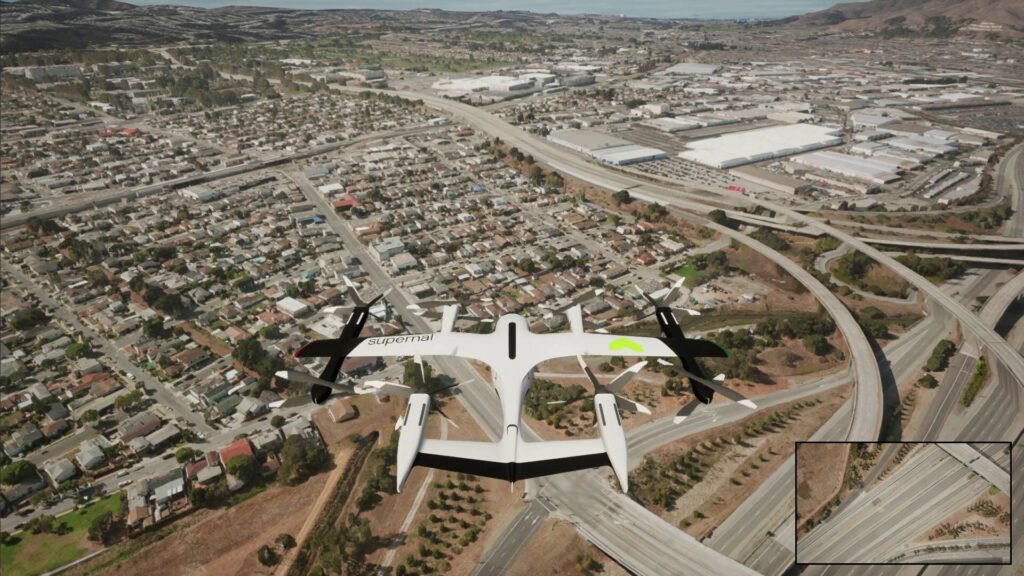
Supernal is collaborating with Microsoft in development of its eVTOL aircraft for advanced air mobility. The collaboration aims to advance autonomy, cloud integration technologies, and digital operations by leveraging Microsoft Azure. (Photo: Courtesy of Microsoft)
Hyundai’s Supernal recently announced that it is collaborating with Microsoft in development of its electric vertical take-off and landing (eVTOL) aircraft for advanced air mobility. The collaboration aims to advance autonomy, cloud integration technologies, and digital operations by leveraging Microsoft Azure, a cloud computing platform.
Microsoft will provide early access to Project AirSim to Supernal’s team. Project AirSim is a simulation platform that uses Azure to generate environment and sensory data that is used for training machine learning models. These models simulate different phases of flight in addition to changing weather conditions. By using Project AirSim, Supernal will be able to leverage simulation capabilities to build, test, and validate an autonomous vehicle in a safe manner.
Dr. Jaiwon Shin, President of Hyundai Motor Group and CEO of Supernal, remarked in the announcement, “Supernal has an obligation to ensure safe and secure deployment of eVTOL vehicles. We are pleased to collaborate with Microsoft, a software leader, in responsibly advancing AAM [advanced air mobility] autonomous systems and information-sharing.”
Dr. Shin previously shared insights into Supernal in an interview with Avionics International. He mentioned that their team is engaging with other stakeholders to open up the market for AAM, in addition to focusing on vehicle development. He also noted that two of the main technological barriers for the industry are related to batteries and autonomous flight.

Dr. Jaiwon Shin, left, and Ulrich Homann, right (Photo: Supernal and Microsoft)
Supernal is targeting certification for its first eVTOL aircraft in 2028. Mike Whitaker, Chief Commercial Officer, told Avionics that automation is more likely to happen in the mid-2030s. “It’s not just the certification of the vehicle and the technology. It’s also new airspace rules, because the FAA right now doesn’t have rules for autonomous operations in civil airspace,” he explained.
Ulrich Homann, Corporate Vice President of Cloud + AI at Microsoft, also commented on the new collaboration with Supernal, saying, “Air transport is a key pillar in the democratization of mobility, connecting more people, goods and places through safe flight experiences.”
“With the Microsoft Cloud, Supernal can unlock the computing power it takes to build, validate, and deploy electric air vehicles at scale, spurring the commercialization of advanced air mobility solutions.”
Microsoft is also collaborating with eVTOL developer Volocopter to develop an aerospace cloud system in Microsoft Azure. Azure will help to enable Volocopter’s VoloIQ digital platform as a flight support system. The two companies have collaborated since 2020, when Volocopter announced that it had selected Azure as its core cloud computing infrastructure for digital UAM operations.